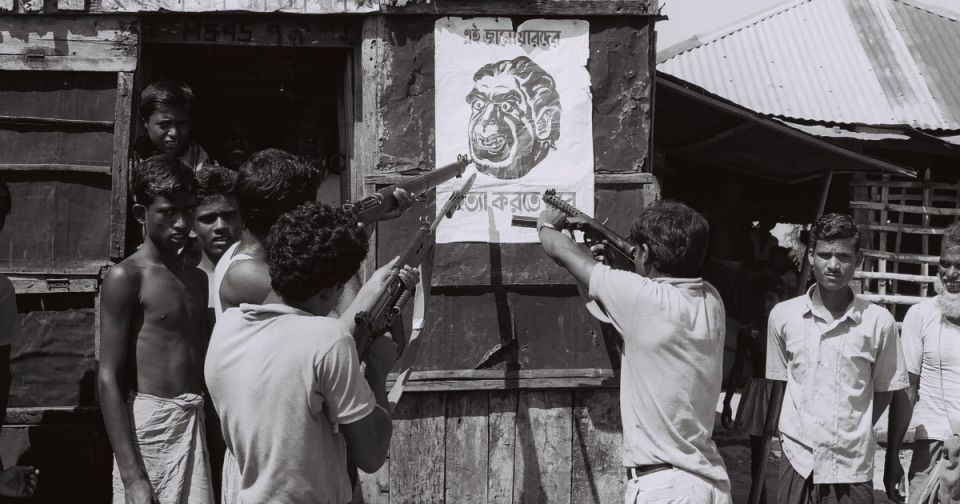Prospects for a peaceful settlement were not too bright, CIA said

The US government changed its policy of not making any comment on the atrocities in East Pakistan after the Consul General in Dhaka, Archer K Blood, lamented the silence in a formal cable of dissent to the Department of State with the signatures of 20 other US officials on April 6, 1971.
The following day, President Richard Nixon appealed to West Pakistan “publicly” for a ceasefire.
He was embarrassed and said the Blood telegram was an “inexcusable” act. “It's a terrible telegram. Couldn't be worse – says we failed to defend American lives and are morally bankrupt,” the president told his Assistant for National Security Affairs Henry Kissinger. As a result of the cable, Nixon ordered Blood transferred from Dhaka.
Two days later, on April 9, Kissinger headed two high-profile discussions on the capabilities of the West Pakistan military and the guerrillas in the East, and the role of India, China and the Soviets.
At the second meeting, the 40 Committee, a short memorandum -- from Central Intelligence Agency (CIA) Director Richard Helms to Kissinger -- was distributed among the participants.
The memo had a provision of providing unmarked small arms to the "freedom fighters" in East Pakistan.
CIA Deputy Director Lt Gen Robert Cushman remarked that the Agency had a secure channel through which it could deliver such weapons. However, it was his personal opinion that this operation would not remain secret much beyond that. He noted that Director Helms had not favoured the project either.
Admiral Thomas Moorer, Chairman of the Joint Chiefs of Staff (JCS), felt that it would be "very wrong" to be working on both sides of the East Pakistani issue at once.
In the end, Kissinger summarized the discussion by saying that he felt President Nixon would never approve of the project. He stated his assumption that the US could not, in any case, deliver enough equipment to make a difference in the outcome in East Pakistan.
Situation in East Pakistan
At the first meeting of the Senior Review Group, Gen Cushman said Dhaka, Chittagong and most of the cantonments were controlled by the West Pakistan military. “The countryside between the cities is controlled by the Bengalis. The prospects for [a] peaceful settlement are not too bright.”
Though East Pakistani leader Sheikh Mujibur Rahman was in jail, “other leaders have come to the fore. They may be trying to hold out until the end of the dry season around the end of June. After that time, most of the countryside becomes a lake and transportation is very difficult.”
He stated that the Bengalis had cut bridges and were interfering with road traffic. “The [Pakistan] government is trying to get an inland water route going, without too much success.”
The CIA official also said there was a shortage of aviation fuel in Dhaka and a fuel shortage was developing in Ceylon, “which may put a limitation on reinforcement flights for West Pakistan.”
Against some 30,000 West Pakistan troops were an armed peasantry, approximately 10,000 guerrilla fighters and a few battalions of Bengali troops. “However, the Bengalis are poorly armed and trained. Their communications are very poor but we don't know if they have a central command and control system,” Gen Cushman said.
At this point, Assistant Secretary of State Joseph Sisco said: “We think it very doubtful. They (the Bengalis) seem to be collecting themselves and trying to regroup.”
Gen Cushman said it was a very dangerous period due to the possibility of Chinese Communist influence or a takeover by an extremist group, like the Naxalites in West Bengal.
“There is also the danger of famine and disease. Planting in the countryside may be disrupted, and the problems would become acute if there is starvation or an epidemic. India has publicly stated they favour the Bengalis. Although they deny any intervention, they are probably sending in arms,” he said, adding that India had taken the position that it would prefer to see an independent Bengali state.
JCS chief Admiral Moorer said he had just come from a CENTO military meeting and had long conversations with the Pakistani and Iranian military representatives.
“There is no question in their minds that the Indians would like to see an independent East Pakistan. The Pakistanis were very bitter about the arms supply,” he said, adding that they thought West Pakistan could win with 30,000 troops against 75 million Bengalis.












